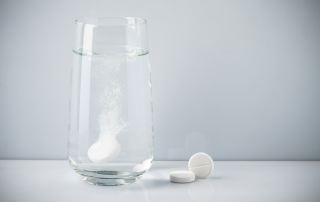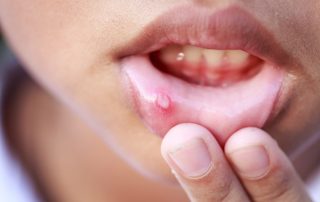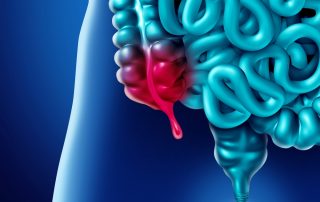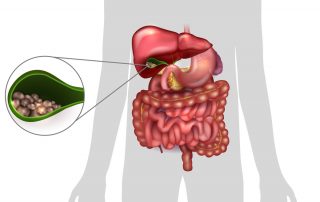Book a telehealth GP appointment
Want to stay on top of your health? With Qoctor’s online doctor service, you can book an appointment to speak to an experienced doctor. First, answer some simple online questions about your health, then have a phone/video consultation with one of our doctors. If you need a prescription that can be sent to you as an eScript, posted to you as a paper copy, or sent electronically to your pharmacy. If the doctor issues a referral letter or a pathology request form, you can download it immediately after your appointment from your Qoctor account. Later, if we receive test results, they will be available to view on your Qoctor profile, or you can book a follow up appointment to discuss your health if you need to.
For longstanding or complicated health issues, we recommend you should see your own GP and keep them informed.
About our doctors

Common Questions and Answers
If you receive a pathology request form from Qoctor, you can download it from your Qoctor account, print it and take it to any accredited pathology collection centre of your choice. Your test results will get sent to us by the relevant pathology laboratory, usually a few days after you have the test. Once available, we will display your results on your Qoctor account. For privacy and security, you will need to log in to view results.
Approved Pathology Collection Centres (APCCs)
APCCs are facilities to where patients can take their pathology request form to have their sample/specimen collected for testing in a pathology laboratory. They are linked to accredited pathology laboratories and are subject to ongoing monitoring processes, ensuring the quality of pathology collection services. If you are unsure whether your Pathology Collection Centre is linked to an accredited laboratory, you can look for the NATA/RCPA logos or endorsement certificates, or ask the staff if the lab they work with has NATA/RCPA accreditation. Patients can also refer to the NATA website which lists all Medical Testing laboratories currently accredited in Australia (bearing in mind, the lab may not be in the same physical location as the collection centre).
With Qoctor, you can request to have a urine test for STIs, which checks for Chlamydia, Gonorrhoea and Mycoplasma Genitalium. The consultation fee is $31.99. Results are displayed and viewable on your Qoctor account, once the laboratory makes them available to us. The consultation fee includes a follow up doctor’s consultation with Qoctor within 30 days, if you wish to discuss your test results or if the results are abnormal in any way. If you would also like to have blood tests to screen for HIV, Hepatitis B&C and Syphilis, the consultation fee is slightly higher, at $36.99. Again, a follow up visit is included if you wish to discuss your results or if anything comes back abnormal.
- Simple (urine) UTI test $31.99. Tests for Chlamydia, Gonorrhoea and Mycoplasma Genitalium.
- Extended (urine and blood) STI test $36.99. Tests for Chlamydia, Gonorrhoea, Mycoplasma Genitalium, HIV, Hepatitis B&C and Syphilis.
STI Screening with Qoctor can involve tests for Chlamydia, Gonorrhoea, Mycoplasma Genitalium (urine test). Blood tests for Syphilis, Hepatitis B, Hepatitis C and HIV are also possible. “Screening” is when you get tested for something when you don’t have symptoms. If you are already unwell or have symptoms suggestive of an STI, you should attend a GP or sexual health clinic in person- requesting a test online is not suitable in those circumstances. But, if you just want a test to ensure you don’t have a silent STI infection, online assessment can be a convenient. effective and affordable option for many people. In Australia, pathology tests generally require you to have a request form from a registered doctor. So, once the doctor has carried out a brief consultation and provided a request form, you can print it and take it to your local pathology collection service. The test results, once made available to Qoctor by the laboratory, can be viewed on your Qoctor account, and/or you can speak to one of our doctors if you need to.
Health Library
Acid reflux- what causes GORD, and how to get rid of it
Acid reflux- what causes GORD, and how to get rid of it Acid reflux is when stomach acid flows from the stomach upwards into the oesophagus. The oesophagus (us-off-a-gus) is the tube connecting your mouth with your stomach. Acid reflux can cause irritation of the lining of the oesophagus. Gastro-oesophageal reflux disease (GORD or GERD) may be present if someone has symptoms of acid reflux more than twice a week. Many people experience acid reflux from time to time. While most people can manage the symptoms with lifestyle changes and simple medications from their pharmacy, some people suffering from GORD may need stronger medications or even surgery to treat their symptoms. Anyone with acid reflux or GORD symptoms that are not settling, or that are getting worse over time, should seek medical advice, as investigations may be required to rule out more serious underlying conditions. [...]
What is Bali Belly?
What is Bali Belly? causes prevention treatment What causes Bali Belly? Bali Belly is also known as “Traveller’s Diarrhoea” It comes from eating contaminated food or drinking contaminated water You get watery diarrhoea, and sometimes vomiting, fever, bloating or tummy cramps. It usually lasts between 1 and 5 days In 10% of people it lasts more than 2 weeks There are other conditions you need to consider. Dysentery leads to blood or mucus in your poo- urgent medical attention is required. Giardia is a specific parasite that causes lots of farting, bloating, tummy pains. It tends to last a long time. Click here to request an online medical certificate How can you avoid Bali Belly? There are a few tips that may help you avoid getting Bali Belly. Make sure all meat and seafood is thoroughly cooked [...]
Traveller’s Diarrhoea- causes, symptoms & treatment
Traveller's Diarrhoea- causes, symptoms & treatment What is Traveller’s Diarrhoea? Diarrhoea is 3 or more loose bowel motions per 24 hours. Traveller’s Diarrhoea is Gastroenteritis (“gastro”) that develops shortly after or during travel abroad. It can range from a tummy upset for a day or two, with mild diarrhoea, to more severe diarrhoea, tummy cramps, vomiting, fevers and dehydration lasting several days or longer. What are the symptoms of Traveller's Diarrhoea? Symptoms (other than diarrhoea) may include: Abdominal pain Nausea (feeling sick) and/or vomiting Fevers Aches What conditions can be treated by our online doctors? What causes Traveller's Diarrhoea? Traveller’s Diarrhoea is caused by eating food or drinking water contaminated with germs (bacteria, viruses or parasites) or their toxins. It can be spread by contact with an infected person. The commonest germs include: Bacteria Escherichia coli (E [...]
What causes mouth ulcers?
What causes mouth ulcers? & when to see a doctor What causes mouth ulcers? By far the most common type of mouth ulcers are “aphthous ulcers”. These are thought to affect 20-30% of the population, tending to start in childhood and getting less frequent as a person gets older. With aphthous ulcers, the lining of the mouth or tongue breaks down in a small round or oval area, often with a white, grey or yellow tinge in the middle, and an inflamed red edge. Aphthous can be very painful, and salty, spicy or acidic foods can make them sting badly. Some people get an aphthous ulcer once or twice a year, others may get them almost continuously, varying from single lesions to several at a time. What conditions can be treated by our online doctors? What causes [...]
Appendicitis- how to recognise the symptoms
Appendicitis- how to recognise the symptoms cause symptoms diagnosis treatment When people come to see the doctor with abdominal pain, often they are worried it could be Appendicitis. So how do you know if you have Appendicitis? Here are a few tell-tale signs that doctors look out for. But first, what exactly is Appendicitis? What is the Appendix and what does it do? The appendix is a small worm-like tubular structure that extends from the start of the large intestine (the caecum), which in most people is situated in the lower right side of the abdomen (tummy). The appendix does not appear to have any important functions in modern-day humans. However, in other mammals, the appendix still has a role in the digestion of food- so it may have had a similar purpose for our human ancestors. [...]
What are gallstones and why do they happen?
What are gallstones and why do they happen? what are they? causes symptoms tests & treatment What are gallstones? Gallstones are hard deposits that form in the gallbladder The gallbladder is a sac-like organ located just under the liver- it stores bile which is a yellow-green liquid formed by the liver, that helps to digest food. When you eat, the gallbladder contracts, and squirts bile into the intestine. Gallstones can consist of different substances- cholesterol, pigments, or a mixture of both. Quite often there are bacteria contained in the centre of the stones. What conditions can be treated by our online doctors? How common are gallstones? Around 15% of the population are thought to have gallstones, but most of these people have no symptoms. Why do people get gallstones? What causes gallstones? [...]






